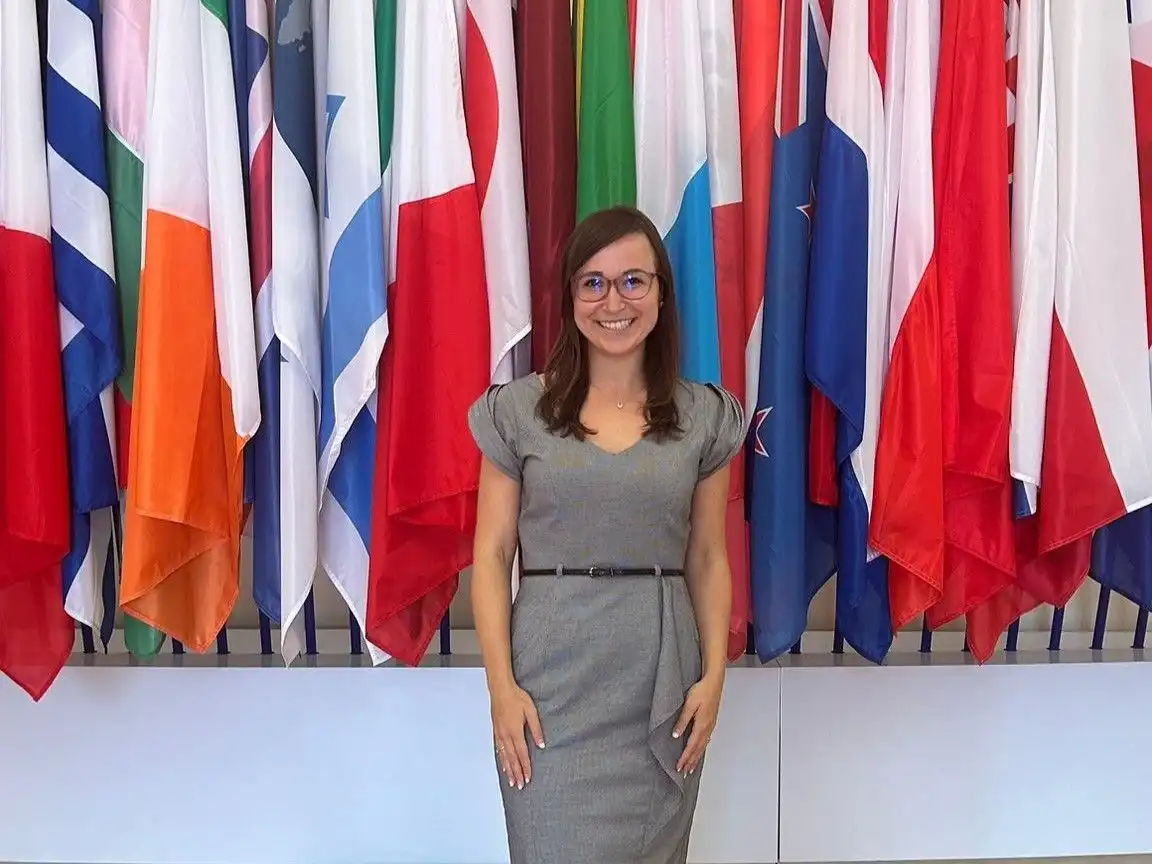Home>Alzbeta, Research Associate transitioning to Junior Economist, at OECD
24.10.2024
Alzbeta, Research Associate transitioning to Junior Economist, at OECD

Coming from Czechia, Alzbeta has graduated in International Economic Policy, with concentrations in Methods and Environment & Sustainability. She currently works at the OECD in Paris as a Research Associate transitioning to Junior Economist.
What are your main responsibilities?
My tasks are highly varied, depending on the specific project I’m working on. My primary responsibility is drafting analytical reports on topics such as innovation, industry, and green & digital technologies, using datasets that I either create from publicly available resources or compile from micro-data in relational databases. I have also organised experience-sharing workshops with experts from academia, industry and governments, managed interns, liaised with delegates… There is always a lot of variety, and I never get bored. Our projects typically require collaboration within a team, but autonomous work is essential, as parts of the reports are drafted individually, so I need to be adaptable and flexible.
How did you prepare for this job?
Unlike my previous roles, which were more focused on policy analysis only, my current position requires a strong emphasis on quantitative skills, such as econometrics and programming languages like R and SQL. Sciences Po and the Methods concentration provided a solid foundation in these areas, but I had to push further and practice extensively on my own, which ultimately paid off.
What is the most fascinating part of your job?
Every day brings new challenges! I love the complexity of my job, both in terms of content and form. I have to constantly improve and embrace changes because each project requires a unique combination of topics, expertise and skills. Sometimes it is more policy-focused, while other times I spend months with my nose deep in data trying to understand correlations and causalties. At the end of each day, I will have learned something new. It is also very rewarding to work alongside skilled and knowledgeable colleagues who are, at the same time, genuinely nice.
How did your PSIA experience contribute to the position you hold today?
At PSIA, I gained many soft skills that are crucial even for research-oriented jobs. It was also thanks to a PSIA course that I secured my internship, which later turned into a full-time position. One thing I realized is that you never know which classes will prove valuable, because the labour market is evolving so rapidly that any skill could become relevant in the future. As for me, I took several programming courses, which have been incredibly useful, but if I could go back, I would take more econometrics classes as well.